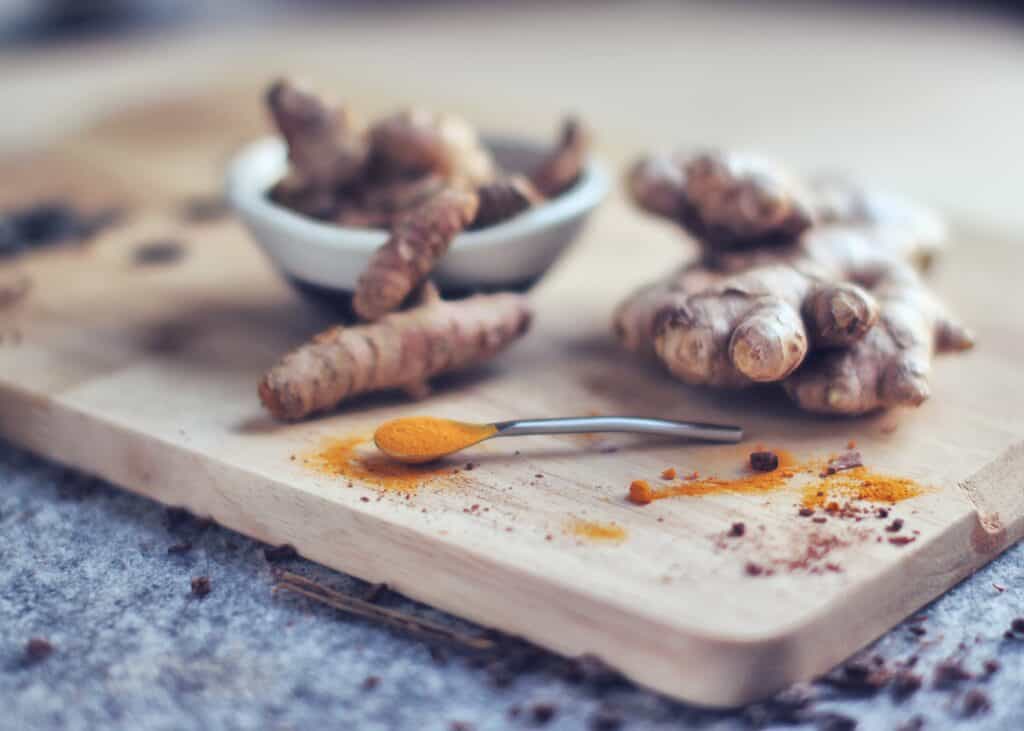How to treat your dog for worms with plants
Conventional dewormers use chemical-based pesticides that contain toxins and carcinogens. By using natural, herbal, and homeopathic dewormers, you can reduce your dog’s toxic load, exposure to carcinogens, and support overall health. In some cases of extreme parasite infestation, the use of pesticide treatment may be necessary – but as soon as the treatment is complete, you can follow the protocol provided below to avoid re-infestation and re-use of pesticide-based dewormers.
How to Keep Your Dog’s Immune System Strong
A healthy body does not attract parasites – so the key to preventing repeat intestinal worm infestations is to support your pet’s overall health by taking a holistic approach:
-
Make sure your dog is on a species-appropriate diet
-
Make sure his diet is free of toxins and carcinogens
-
Replace pesticide-based flea, tick and mosquito repellents with herbal alternatives
-
Don’t over-vaccinate your dog – only vaccinate what is really needed and have titration tests done to determine when repeat inoculations are needed
-
Do not put your dog on antibiotics or chemical-based medications if you can treat the problem with other interventions
-
Further reduce your dog’s toxic load
Choose daily care products that do not contain toxins or carcinogens. Do not use chemical-based cleaning products in your home. Stop using chemicals, pesticides, herbicides or fertilizers in your yard, on your lawn, on your trees, in your garden. Remove road salt from your dog’s paws in the winter.

Signs your dog might have an intestinal parasite infestation
-
Diarrhea
-
Vomiting
-
Gastrointestinal disorders
-
Weightloss
-
Eat a lot of food without gaining weight
-
Anemia (deficiency of red blood cells in the circulatory system)
-
Drags his bottom on the floor
-
Mild to severe cough
-
Scratching – especially at the base of the tail
Dogs catch some of the same parasites that we humans are susceptible to, including:
-
Roundworm (common roundworm – Ascaris)
-
Hookworm
-
Tapeworm
-
Strongyloides
-
Trichinella

Foods that help kill parasites and prevent reinfestations
Add the following foods to help kill pests and prevent reinfestations.
-
Garlic
-
Papaya – fresh and finely chopped/mashed, or in powder form (in which case follow the manufacturer’s dosage)
The enzymes in papaya aid digestion and help irritate and destroy worms from their exterior.
Dosage: 1 teaspoon to 1 tablespoon depending on the size of the dog.
-
Turmeric – naturally contains four anti-parasitic compounds which, when present, collectively have strong anti-worm properties. Turmeric is also an anti-inflammatory and can therefore help reduce inflammation of the intestinal walls caused by worms.
-
Wheat germ oil or pumpkin seed oil – ¼ to 1 tsp (amount depends on size of dog).
-
Yogurt or Kefir – Natural yogurt and kefir, with no additives or sweeteners – are rich in beneficial probiotics (microorganisms) that help ward off disease-causing microorganisms while replenishing the intestinal tract with friendly flora.
If you find that your dog enjoys the inclusion of beets, carrots, garlic, lemon, papaya, pumpkin seeds, turmeric, or yogurt in his diet, you can continue to feed him these fresh foods daily, as all have multiple health benefits.

Choose a natural dewormer
-
Diatomaceous earth (DE), food grade
-
Garlic
-
Grapefruit seeds
-
Pumpkin seeds
-
Cloves
Attention, deworming care generally requires about 10 days.
1. Diatomaceous earth (DE), food grade
For the treatment and prevention of several types of worms in dogs.
DE can be given to dogs of all ages. It’s a white powder made from grinding up fossilized sea life (diatoms, a type of algae), resulting in a fine abrasive powder that is non-toxic to dogs and humans. When the powder comes into contact with parasites, the microscopic razor-like edges of the DE abrades the exterior of the parasites. DE also dehydrates the parasite.
Advantages
It rids the body of:
-
Parasites such as lice, ticks, fleas, mites and worms (but not heartworms)
-
Harmful bacteria and some viruses
-
Methylmercury
-
E.coli
-
Organophosphate pesticide residues
-
Drug residues
DE has a dehydrating effect, so make sure your dog always has access to plenty of fresh water.
Dosage for DE:
-
Small dogs – ½ tsp
-
Medium dogs (under 20 kg) – 2 teaspoons
-
Large dogs (20 – 50 kg) – 1 tablespoon
2. Garlic (Allium sativum)
For the treatment and prevention of several types of worms and giardia in dogs.
Garlic is an effective immune system booster and is also effective in preventing and treating an intestinal worm infestation. It has also been shown to be beneficial in the prevention and treatment of the Giardia parasite.
In 2008, a scientific study was carried out in which garlic was tested against ivermectin.
Garlic has been shown to be very effective as an alternative treatment to allopathic interventions such as ivermectin, which is a pesticide-based preventative. It’s also an effective inhibitor against Giardia.
How to Include Garlic in Your Dog’s Diet
You can decide to give your dog garlic only during the deworming period, or you can add garlic to your daily diet.
Preparation
Chop, mince, crush or press the garlic and let it sit at room temperature for 10-15 minutes before giving the garlic to your dog. This gives alliin and alliinase enough time to undergo the enzymatic reaction that creates allicin.
Recommended Daily Dosage for Dogs
1 clove of fresh garlic (or 1 teaspoon finely chopped) per 15 kg of body weight per day.
Interactions, warnings
If your dog is taking a blood thinner: Consult your veterinarian before giving garlic to your dog. Garlic can slow blood clotting – garlic can increase the effectiveness of warfarin, a blood thinner. Anticoagulant dosage should be adjusted for garlic intake.
3. Grapefruit Seeds – Powdered Seeds or Extracts
For the treatment of various types of worms in dogs.
The benefits of grapefruit seed extract were first noted in 1972 by physicist Dr. Jacob Harich who observed its broad-spectrum use as an antibacterial and antiviral remedy.
Grapefruit seeds contain active ingredients that are antimicrobial, antifungal, antibacterial, anti-inflammatory and more. It’s known to be excellent for treating internal diseases caused by bacteria, viruses, fungi, it is used topically to treat and remedy skin diseases, external wounds and fungal infections.
Researchers at the University of Georgia have found that grapefruit seed is an effective antiviral, antifungal, and antiparasitic agent in fighting many viral and bacterial infections, including E. coli.
Additional findings have proven grapefruit seed to be a highly effective treatment for: 800 bacterial and viral strains; 100 mushroom strains; a multitude of unicellular and multicellular parasites.
Grapefruit seed is also an immune system stimulant. It contains:
-
Hesperidin (a bioflavonoid), well known for its powerful immune system benefits
-
Vitamin C, citric acid, sterols and several additional antioxidants that help the immune system fight infections.
Grapefruit seeds can be administered in two ways for deworming:
-
Pulverized seeds can be used as an ingested treatment, sprinkled on food
-
Drops of grapefruit seed extract can be mixed into food
Dosage:
Liquid :
Minimum dosage – 0.5 drops per kg of body weight
Maximum dose – 10-15 drops per 5 kg of body weight 3 times a day
Ground:
8 mg per kg of body weight.
4. Pumpkin seeds or oil
Treatment and prevention of hookworms and tapeworms in dogs.
Pumpkin seeds and pumpkin seed oil provide:
-
Antimicrobial support
-
Antioxidant support
-
Nutritional support
-
Are an anti-carcinogenic, and…
-
A dewormer.
Use raw pumpkin seeds.
Preparation:
Grind the pumpkin seeds into a fine powder (you can use a mortar and pestle, a coffee grinder, a food processor).
Uses:
-
Add ground pumpkin seeds to your dog’s food once a day for two weeks
-
Are a good source of zinc, vitamin A and are rich in protein
-
As pumpkin seeds are completely non-toxic to dogs and have many health benefits, you may also choose to add them to your dog’s diet on a regular, daily basis.
Dosage
-
1/4 teaspoon per 5 kg of body weight
-
1/4 teaspoon pumpkin seed oil (or wheat germ oil) per 5 kg body weight
5. Cloves
For the treatment and prevention of several types of worms in dogs.
Cloves have many health benefits and have been used for their medicinal and culinary properties by humans for 2000 years.
They contain a compound that increases white blood cell count, which boosts your dog’s immune system — a healthy dog is not a good host for a parasitic infestation.
Cloves contain powerful antibacterial and antiparasitic properties.
Because cloves are potent, they should not be part of a dog’s regular daily diet. The use of cloves should be limited to a period of several weeks once or twice a year.
Dosage
-
Small dogs – use ¼ of a whole dry clove, crushed and mixed into food once a day for a week, then skip a week and repeat the dose once more
-
Medium dogs – use ½ of a whole dry clove, crushed and mixed into food once a day for a week, then skip a week and repeat the dose once more
-
Large dogs – use 1 whole dry clove, crushed and mixed into food once daily for a week, then skip a week and repeat once more
Use certified organic if possible.
Precautions – do not use cloves, whether whole, ground, powder or oil on pregnant dogs, as cloves are a uterine stimulant.

That was a quick tour of all the different natural products you can use to not only treat worms, but also boost your dog’s immunity, which will create a healthy internal state. This will translate to fewer illnesses overall, as your dog will have an internal system that can defend itself against all kinds of attacks!
Do you also want to protect your pup against ticks and fleas? Then download my free anti-tick and flea recipe guide!
Don’t hesitate to contact me:
Email : contact@enlightenedanimal.com
Website : https://www.enlightenedanimal.com


0 Comments